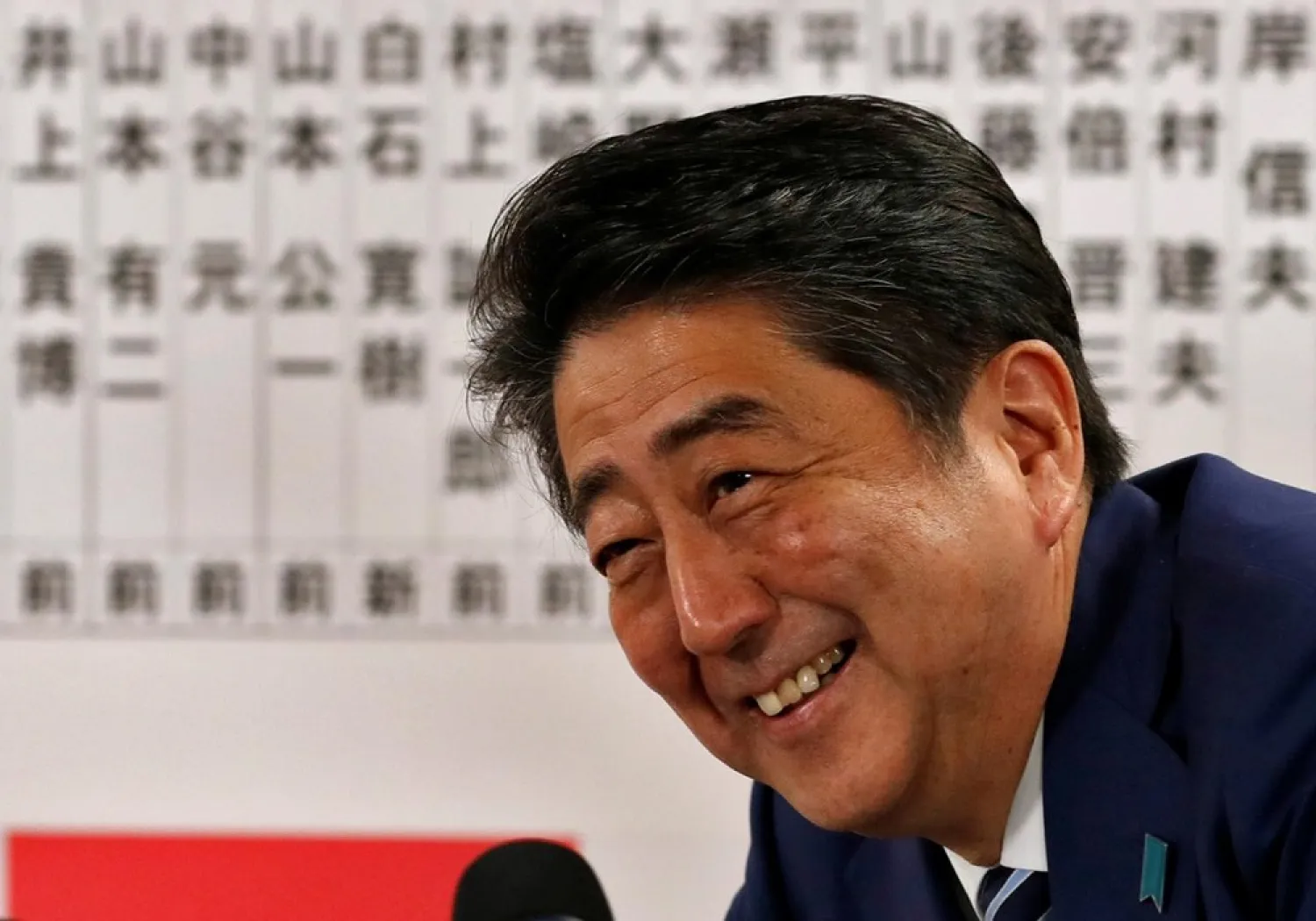Soon after securing “super-majority” in national elections, Japanese Prime Minister Shinzo Abe made a pledge to start working with the United States, China and Russia to curb North Korea’s nuclear drive.
He vowed to adopt a “strong and resolute diplomacy” as he set up a meeting with President Donald Trump on November 5 as part of the US leader’s first Asia tour.
"I have renewed my determination to secure people's lives and peaceful living, no matter what," said the 63-year-old.
Japan is the first stop for Trump on a trip that will also take him to South Korea, China, Vietnam and the Philippines. During a 30-minute phone call, Trump congratulated Abe on his party's decisive victory in parliamentary elections Sunday.
The nationalist premier’s victory allows him to to realize his dream of revising Japan's pacifist constitution. Abe vowed to forge a "national consensus" on the divisive issue.
His supporters view the 1947 constitution as the legacy of Japan's defeat in World War II and an imposition of the victor's world order and values. The charter renounces the use of force in international conflicts and limits Japan's troops to self-defense, although Japan has a well-equipped modern military that works closely with the US.
Any change to Japan's constitution, which has never been amended, requires approval first by two-thirds of parliament, and then in a public referendum. Polls indicate that the Japanese public remains opposed to amendment.
North Korea, which has threatened to "sink" Japan and fired two missiles over its northern islands, had however dominated the 12-day election campaign that Abe eventually won comfortably.
"We will solve North Korea's missile, nuclear and abduction issues with strong, resolute diplomacy," he said in reference to the abduction of Japanese by Pyongyang in the 1970s and 1980s.
Abe is now on course to become Japan's longest-serving premier, winning a fresh term at the helm of the world's third-biggest economy and key US regional ally.
However, while local media acknowledged what was described as a landslide victory, many attributed Abe's win to a weak and ineffective opposition and urged caution.
The opposition Party of Hope, formed only weeks before the election by the popular Tokyo Governor Yuriko Koike, suffered a drubbing. It won just 49 seats according to the NHK projections.
"The voters didn't think the opposition parties were capable of running a government... they chose Prime Minister Abe, who is at least better, even if they had some concerns about the ruling coalition," said the Nikkei daily.
According to an exit poll by Kyodo News on Sunday, 51 percent of voters said they do not trust Abe with 44 percent saying they did.
Abe, who has in the past been criticized for arrogance towards voters, vowed to face the challenge posed by the victory "humbly."
He struck a cautious note on possible revisions to the US-imposed constitution, saying he would "deepen" debate in parliament on the divisive issue but not seek to ram anything through.
Any changes to the document must be ratified by both chambers of parliament and then in a referendum, with surveys showing voters are split on the topic.
"Abe would want to see a constitutional revision but we know he is ideologically on the right and he's very pragmatic at the same time. And I think that pragmatism will force him to back off from pushing that issue too hard," said Curtis.
Abe also vowed to tackle Japan’s aging and shrinking population.
He promised a comprehensive package by the end of the year to deal with Japan's demographic challenges, including investments in education, productivity improvements and pension system reform.









